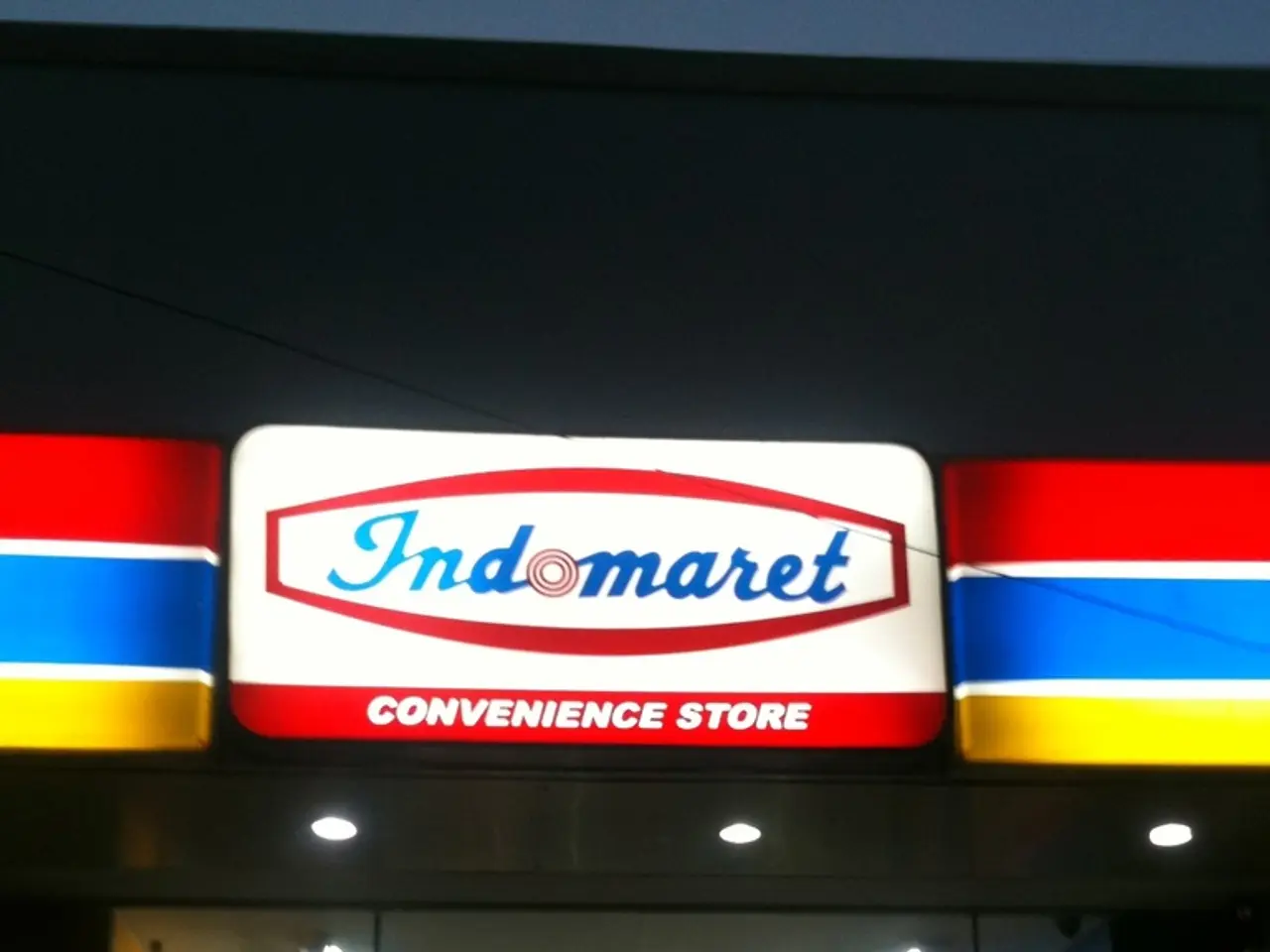Online shopping giant Coupang's interest in offline retail expansion tested through Homeplus acquisition sale
In a potential shakeup for Korea's retail landscape, e-commerce giant Coupang is being considered as a likely candidate to acquire Homeplus, the country's No. 2 discount supermarket chain.
Homeplus, which has been struggling financially and is currently undergoing bankruptcy rehabilitation, is up for sale through a full-package merger and acquisition process. The labor union of Homeplus has expressed concern over the proposed sale and is calling for direct government intervention and regulatory oversight should an M&A proceed.
Potential Benefits of Coupang Acquiring Homeplus
If Coupang were to acquire Homeplus, it could secure a local, nationwide brick-and-mortar distribution network. This integration of offline and online logistics could create synergy and enhance delivery capabilities, potentially reaching more customers.
Homeplus' extensive store network could also support physical presence and inventory hubs, which could further improve delivery capabilities and customer reach. Moreover, the acquisition could synergize with agricultural product distribution efforts, especially given ongoing Korea-U.S. tariff negotiations impacting agricultural imports.
Challenges and Reasons for Coupang’s Reluctance
Despite the potential benefits, Coupang has expressed little interest in entering offline retail. The company has expanded its online infrastructure nationwide and views offline store operations as unattractive, suggesting a strategic preference to avoid brick-and-mortar complexity.
The Homeplus chain is currently under severe financial strain, with 15 stores closing and ongoing difficulties in negotiating rent cuts for leased stores. Other traditional offline retailers like Lotte Shopping and E-Mart also face pressure to reduce stores rather than expand, indicating a challenging environment for large-scale offline retail expansion.
Additional Context
The government might intervene in the takeover process considering employment and economic factors, making the acquisition more complex. There is speculation about possible separate sales of Homeplus stores, but this is denied by judicial bodies. Homeplus is actively seeking buyers during its rehabilitation, but no clear new owner has formally emerged yet.
Financial Considerations
If Coupang were to acquire Homeplus, it could potentially elevate its presence as a brick-and-mortar player in the Korean market. Last year, Homeplus posted an operating loss of 314.2 billion won, marking its fourth consecutive year in the red. The retailer holds total assets of 6.8 trillion won, of which around 2.9 trillion won are liabilities.
Coupang, if it acquires Homeplus, could potentially absorb Homeplus' distressed debt while retaining ample headroom for further capital investment. The sale price could fall below 1 trillion won if the buyer uses a real estate-backed financing structure. As of the end of last year, Coupang held 5.77 trillion won in cash and equivalents, with a net cash position of 2.08 trillion won after debt.
Market Impact
The acquisition of Homeplus by Coupang could deepen the company's understanding of its consumers and strengthen brand loyalty. It could also make the e-commerce giant a full-spectrum retail powerhouse. The e-commerce market in Korea could surpass $700 billion, according to Coupang founder and CEO Kim Bom's 2023 projection.
Homeplus owns 126 hypermarkets and 308 smaller-format stores across the country, which could immediately boost Coupang's logistics capabilities. The acquisition would add a nationwide network for food distribution, last-mile fulfillment, and physical brand presence, particularly outside the Seoul area.
Market watchers suggest e-commerce giant Coupang as a potential bidder to acquire Homeplus. The acquisition could give Coupang an edge in an e-commerce landscape increasingly defined by fierce competition, including from deep-pocketed rival Naver.
In summary, while Coupang is among the most likely candidates to acquire Homeplus due to its market strength and the potential synergy benefits of controlling physical retail outlets, Coupang’s own stated strategy emphasizes online growth, which combined with Homeplus’s financial difficulties and the broader challenges in offline retail, makes any acquisition a complex and potentially risky decision.
Finance-wise, the acquisition of Homeplus by Coupang could potentially elevate Coupang's presence as a brick-and-mortar player in the Korean market, allowing the e-commerce giant to absorb Homeplus' distressed debt while retaining ample headroom for further capital investment.
From a business perspective, integrating offline and online logistics through the acquisition of Homeplus could create synergy, enhance delivery capabilities, and reach more customers, which is crucial in the competitive e-commerce landscape of Korea.




